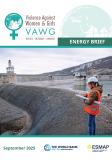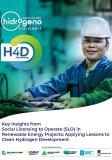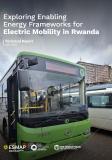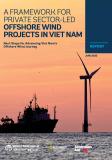Publications
In the clean cooking sector, the successful application of Results-Based Financing (RBF) instruments has been observed for the climate co-benefit, where the market for averted greenhouse gas (GHG) emissions has enjoyed strong performance; however, supplementing GHG emission-reduction credits with tradeable assets from clean cooking’s additional co-benefits requires developing rigorous methods and tools that can be confidently applied on a wide scale. Building Evidence to Unlock Impact Finance: A Field Assessment of Clean Cooking Co-Benefits for Climate, Health, and Gender field-tests novel co-benefit measurement methodologies for a selected (biogas) intervention in rural Kenya, demonstrating the methods’ feasibility and potential, as well as areas for further improvement.
The report targets impact buyers, who need assurance that the achievement of pre-agreed project results is verifiable in a robust, cost-effective, and scalable manner, and project developers and implementers, who require much needed certainty of impact buyers’ commitment to purchase verified results in order to invest in and expand the scope of their monitoring beyond GHG emission reductions. The report’s practical lessons and guidance will be of interest to multiple stakeholders along the RBF value chain, including researchers and verification agents, technology suppliers, multilateral and bilateral donors and governments, and other cadres of investors.
Key Findings
World Bank.
Building Evidence to Unlock Impact Finance : A Field Assessment of Clean Cooking Co-benefits for Climate, Health, and Gender (English). Washington, D.C. : World Bank Group. http://documents.worldbank.org/curated/en/099051123130561434/P17423201c1bc105d0a4da0803634916bb0



